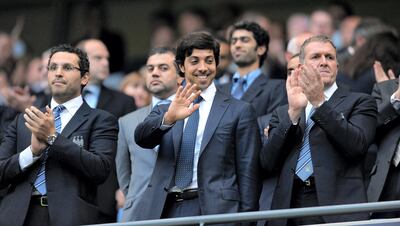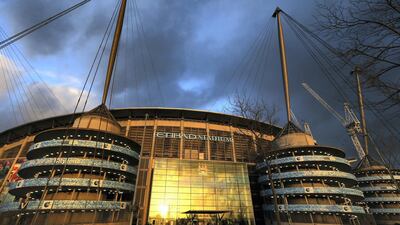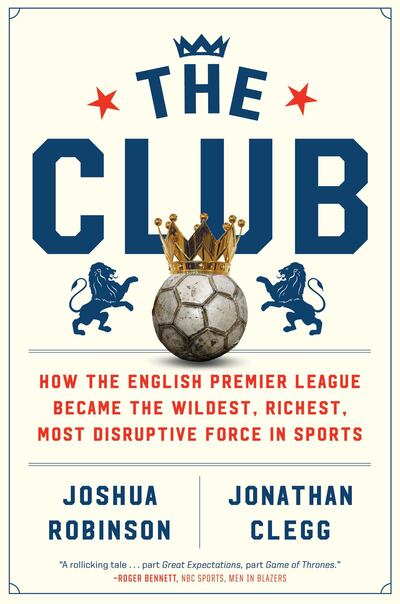When Abu Dhabi United Group bought Manchester City in 2008, its staff received an internal memo. "We're not a football club, we're actually a sports entertainment media company," CEO Garry Cook explained. "So we must create content. We must provide events, we must create shows, we must create drama. And we must be part of the news, front page and back page, in every way." This drama was created immediately.
In Jonathan Clegg and Joshua Robinson's fascinating history of the English Premier League, they look at its transformation from an ailing parochial competition into "the richest, most disruptive business in sport", and recount the unusual condition attached to the purchase of City.

With the transfer window closing, Cook had 24 hours to sign a superstar – no easy task given that City had finished the previous Premier League season in ninth place. The television channel Sky Sports News got wind of their predicament and cleared their Deadline Day coverage for City's "carpet-bombing" of Europe with offers for big-name players.
City got their man, signing Brazilian winger Robinho from Real Madrid. At £32.5 million (Dh153.8m), the British transfer record was broken and City were certainly news.
Rewind to 1992, and the formation of the breakaway Premier League from the old Football League, and spending £32.5m on a single player would have been impossible. The combined value of all its clubs was £50m (Dh236.7m) – now, it is a staggering £10 billion (Dh47.3bn).

It is to Clegg and Robinson's credit that they not only put the idea of the Premier League in context, but steer a compelling course through what they call a "crazy quarter-century in which money, ambition and uncommon drama turned an ancient league into the most obsessively followed sports product on planet Earth".
And “product” is key here. The Premier League wasn’t set up to make football better as a game, it was formed by the ambitious young businessmen who wanted to make money from it.
As The Club explores, they didn't have a raft of new ideas – most of the real impetus for the reshaping of the league came from looking at the NFL in America, aping some of its best innovations (like the wholesale stealing of Monday Night Football), and making sure the rights to broadcast live games were sold at the highest price possible.
But that was far from easy – stadia were crumbling, while hooliganism and tragedy pockmarked the game. The Club explains how Manchester United were transformed from a club that didn't own their shop into a marketing behemoth, and why a Russian oligarch bought Chelsea, a West London club that hadn't won the league in decades.
There is a lot of ground to cover and, if there is a criticism to throw in the ring, it is that the content isn't revelatory to anyone who grew up with the Premier League in their living rooms over the past 25 years. What The Club does so well, however, is tell its breezy story without getting bogged down in the specifics of each and every season (which would be tedious).
It sticks to its brief of following the arc of the whole Premier League enterprise, through its personalities and business decisions. It is clear that Clegg and Robinson spoke to a lot of key figures – in fact, the book is curiously lacking in authorial colour from these meetings with directors, owners and managers – and their account of the remarkable transformation of Premier League football is perhaps not balanced with enough criticism of the commercial and media entity it has become.
Not interested in sport? Don't worry, it is more about the news around the clubs than the football itself.
As for City and the footballing revolution that has brought Pep Guardiola to the club as the most thrilling content-provider of sports entertainment media, it's telling that Cook's initial comparison with sports entertainment reached an end point 10 years later. Last summer, City received £10m (Dh47.4m) for exclusive access in Amazon Prime's behind-the-scenes documentary All Or Nothing. That's how valuable City was.
These are not just football clubs, but entertainment brands. The Club is a valuable insight into how this has come to pass.
____________________
Read more:
For authors of popular novels, is it worth it to write a sequel?
How do film studios react when they know they’ve made a dud?
Take a look inside the 'world's most beautiful bookshop' in Argentina
____________________


